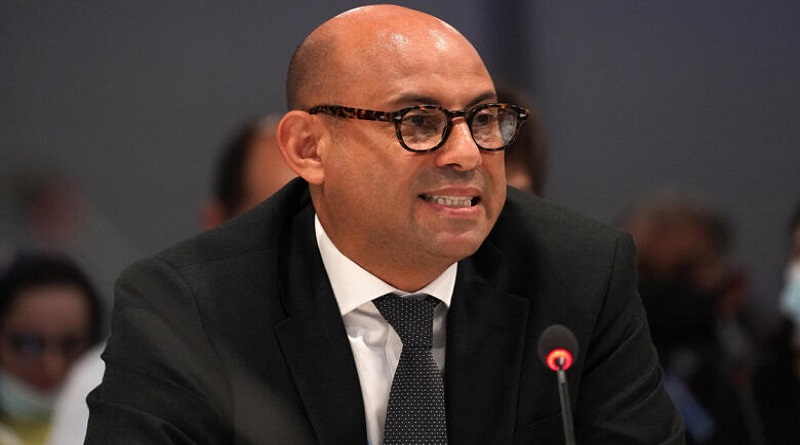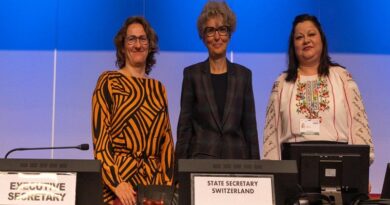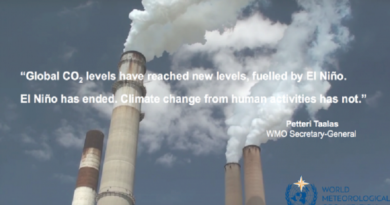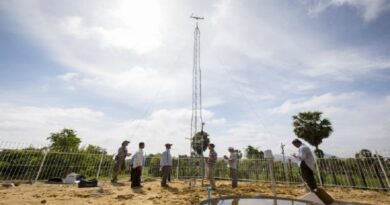Transitional committee on loss and damage makes Progress at third meeting-Stakeholders
The Transitional Committee on the operationalization of the funding arrangements and new fund for responding to loss and damage resulting from climate change held its third meeting from 29 August to 1 September in Santo Domingo in the Dominican Republic. The meeting resulted in significant progress towards fulfilling the mandate given to the Committee at COP27 in Egypt last year.
Addressing the gathering, the President-designate of this year’s UN Climate Change Conference COP28, and UAE’s Special Envoy for Climate Change, H.E. Dr. Sultan Ahmed Al Jaber called on participants to continue to be creative in identifying funding sources and defining the funding arrangements to ensure that funds are adequate and distributed efficiently.
“It is one thing to have a well-structured fund, but will only be fully operational if it is actually funded (….) COP28 in Dubai at the end of the year is the place to deliver and operationalize the fund and funding arrangements for loss and damage,” he said.
Ahead of and during the four-day meeting, members engaged on concrete recommendations and submitted a variety of detailed views. To focus discussions at the meeting, the Co-Chairs of the Transitional Committee published a scenario note outlining a series of key questions for the Committee’s consideration, as well as their expectations for the meeting.
Throughout the meeting, the Co-chairs produced a variety of informal notes on different topics based on the views expressed in the submissions and during the meeting. These included issues raised around the fund, funding arrangements, sources of funding, scope of the fund, ensuring country ownership, access, delivery modalities and triggers, and privileges and immunities.
The Committee narrowed down the options for the placement of the new fund and discussed a variety of related topics including: Whether or not it should be designated as an operating entity of the financial mechanism of the UNFCCC, the composition of the Board, the respective roles of the Board and the secretariat, establishing interim arrangements for the secretariat.
With respect to the new funding arrangements, Transitional Committee members continued to discuss broad principles and potential concerns related to the funding arrangements. Concrete proposals were also put forward, including in relation to areas such as humanitarian response, cultural heritage, and expanding fiscal space.
The Transitional Committee also continued to discuss sources of funding, and advanced deliberations on complementarity and coordination of the new fund and funding arrangements with existing funding arrangements, at both international and national levels.
This third meeting benefited from the Second Glasgow Dialogue held at the June negotiating sessions, as well as the second workshop on addressing loss and damage in the context of decisions 2/CP.27 and 2/CMA.4, which provided space, opportunity and momentum for further work between meetings on the various aspects of the fund and funding arrangements.
As next steps, the Co-chairs have requested members to submit any further views, or reactions to one another’s views by 10 September. They will use these, in addition to the discussions at and materials shared during the meeting, as the basis for preparing documents to facilitate the conclusion of work at the next meeting of the Committee. They also announced their intention to use further virtual meetings to help advance the work ahead of their final meeting.
Despite the progress made at the third meeting of the Transitional Committee, a lot of work remains ahead of the fourth and final meeting (TC4) from 17 to 20 October in Aswan, Egypt. This includes resolving the big-picture issues as well as a number of details.
Mandated ministerial consultations will be convened by the COP27 President and the COP28 President Designate on 22 September, on the margins of the 78th session of the United Nations General Assembly. These consultations will advance consideration and understanding of a possible outcome on the funding arrangements and fund at COP 28.




